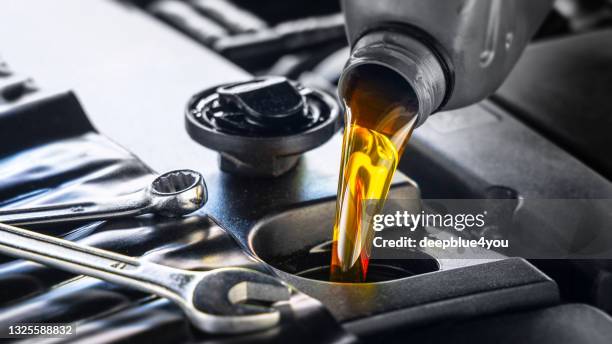Optimize Your Vehicle'S Performance With Normal Oil Changes
Preserving your vehicle's efficiency is a multifaceted undertaking, with routine oil modifications standing out as a critical aspect. Fresh engine oil plays a crucial function in ensuring optimum lubrication, decreasing friction, and avoiding wear on essential parts. Many motorists forget the signs that indicate a requirement for an oil change, potentially jeopardizing their vehicle's longevity.
Relevance of Routine Oil Changes
While many cars and truck proprietors might ignore the relevance of regular oil changes, ignoring this critical upkeep job can cause serious repercussions for engine efficiency and durability. Engine oil plays an important duty in lubricating moving components, decreasing rubbing, and preventing overheating. Gradually, oil deteriorates due to exposure to heat and contaminants, which decreases its effectiveness.
Stopping working to alter the oil regularly can cause the buildup of sludge and debris, which can block important engine elements and lead to increased wear. This not only jeopardizes engine efficiency yet can likewise lead to expensive repair work and even complete engine failing. Furthermore, old oil sheds its capability to neutralize acids generated during combustion, which can cause deterioration and further damage.
Additionally, many car makers suggest particular oil modification periods, usually based on gas mileage or time. Abiding by these guidelines is essential for preserving warranties and guaranteeing optimum car performance. In recap, normal oil changes are not merely a pointer; they are a crucial part of liable automobile upkeep that shields the engine and enhances total performance. Prioritizing this job will certainly contribute substantially to the long life and dependability of any automobile. Oil Change Lockhart.
Advantages of Fresh Oil
Changing to fresh oil offers numerous benefits that directly boost engine efficiency and effectiveness. Among the key benefits of fresh oil is its superior lubricating homes. New oil lowers friction between engine elements, which not only decreases wear yet additionally adds to smoother operation. This leads to boosted fuel efficiency, as the engine does not have to function as difficult to overcome resistance.
Furthermore, fresh oil effectively cleans the engine by suspending impurities and stopping sludge buildup. Gradually, oil comes to be contaminated with dust, steel particles, and combustion results. Consistently replacing oil makes certain that these damaging substances are gotten rid of, advertising a cleaner and much healthier engine atmosphere.
Additionally, fresh oil aids in ideal temperature law. It dissipates heat better, preventing overheating and prospective damages to engine parts. This is particularly important during peak performance situations, where heat buildup can harm engine performance.
Indicators Your Oil Requirements Transforming
Engine oil is the lifeline of your automobile, and identifying when it requires changing is important for preserving optimal efficiency - Oil Change Lockhart. Several indications indicate that it's time for an oil adjustment, and remaining vigilant can protect against engine damage and expensive repair work
First, check the shade and uniformity of the oil. Fresh oil is generally amber and smooth, while old oil may appear dark and gritty, indicating contamination and minimized efficiency. A continue reading this change in thickness can likewise indicate that the oil has damaged down and is no longer properly lubing engine components.

One more warning indication is the oil adjustment light on your control panel. This sharp acts as a suggestion that the oil has actually reached its life-span or that there is a hidden concern requiring attention. In addition, unusual engine Check This Out sounds, such as knocking or ticking, may suggest inadequate lubrication due to degraded oil.
Last but not least, if you observe oil areas or puddles under your car, it might suggest a leak that necessitates prompt inspection and possible oil change. Being attentive to these signs will guarantee your engine operates smoothly and efficiently.
Picking the Right Oil
Picking the proper oil for your car is vital for making certain ideal efficiency and durability. This assistance will certainly guide you towards the appropriate thickness quality, such as 5W-30 or 10W-40, which indicates the oil's density at different temperature levels.
Next, think about the sort of oil: standard, artificial, or a blend. Standard oil is derived from petroleum and appropriates for older vehicles, while synthetic oil uses premium protection and efficiency for modern engines, particularly under extreme problems. Artificial blends incorporate the advantages of both and are commonly a cost-effective choice.
Furthermore, try to find oils that fulfill sector requirements, such as API (American Oil Institute) or ACEA (Association des Constructeurs Européens d'Automobiles) qualifications. These indications make sure that the oil has actually been evaluated for high quality and performance. Ultimately, choosing the right oil not only boosts engine efficiency yet additionally contributes to the total health and wellness of your car, paving the means for smoother driving experiences.
Oil Adjustment Frequency Recommendations

Factors influencing oil change regularity consist of driving conditions, such as stop-and-go web traffic, severe temperature levels, and hauling hefty loads. Under severe problems, it could be prudent to change the oil a lot more regularly to stop engine wear. Furthermore, some contemporary lorries come furnished with oil life monitoring systems that offer personalized suggestions based on driving practices, which can additionally enhance the oil change timetable.
It's critical to consult your owner's handbook for specific recommendations tailored to your lorry. Following these standards not just maintains engine health however also improves fuel performance and minimizes discharges. To conclude, normal oil modifications, timed appropriately based upon various aspects, are a fundamental facet of automobile maintenance that can substantially affect performance Discover More and durability.
Verdict
